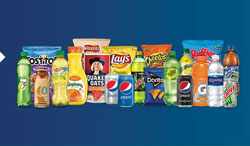There are 10 corporations that control just about every product you own. Kraft, Coca-Cola, PepsiCo, Nestle, Proctor and Gamble, General Mills, Kellogg’s, Mars, Unilever, and Johnson & Johnson are the sole organizations responsible for marketing and distributing what the general public views as the products of hundreds of other companies. These 10 corporations basically run the entire market—and we blindly allow them to, without doubting the ethics of these huge businesses swallowing up everything in their paths.
Recently, a study from JAMA International Medicine revealed one of the secrets of a group aligned with big sugary drink and candy businesses, the Sugar Research Foundation (SRF). Dr. Cristin Kearns dug through boxes of letters in Harvard library’s basement to reveal that two of Harvard’s researchers were paid off by a group called the SRF to counter research that linked sugar to coronary disease. This unethical incident may have occurred 40 years ago, but this is not a trend that is buried in the past. John Maurer, junior communication student, said “Businesses that have been around for a while and have a lot of money can be suspicious. Having money means you can do powerful things.”
In 2012, Coca Cola provided $1.5 million dollars to Global Energy Balance Network, a group aiming to spread the message that people should focus less on counting calories, and focus solely on exercise. Another big corporation, Nestle, saw this donation as a way to take a dig at the competition, telling the New York Times that the agenda of Coca-Cola was clearly to get researchers to deflect attention from dietary intake by confusing the science to the public.
These companies have the money and the means to get away with doing almost anything. Claude Taylor, athletics professor-in-residence for transformative learning, believed the big issue here is corporate social responsibility. “We need two things,” Taylor advised. “Either a regulatory system that requires people to do the right thing, to set rules and regulations that require transparency in the science, and also requires an outside or third-party moderator for the kind of information that companies share with customers. Or, we need companies to regulate or moderate themselves, which is where corporate social responsibility comes in.”
Taylor also explained how it can be tricky for the scientists involved. For those making a meager salary, for a mega company like Coca Cola, or a foundation with billions of dollars like the Sugar Research Foundation to offer an insanely high amount of money to obscure some data or tweak the results—it’s not an easy ethical decision. “If they’re lured by these kind of payouts, they’re more likely to turn a blind out to the deception, and that’s where a third party regulator can monitor what’s happening,” said Taylor.
We can be lulled into a false sense of security from these corporations due to extensive marketing, advertising and public relations campaigns. And, there’s wiggle room with regulations so that a company can claim to be organic, when in reality, it is not the case. “The bright lights and shiny messages of TV, radio and internet advertising can really lull people to sleep so that they think, ‘it says it’s organic, so it must be fine,’” Taylor said. “That’s why so many major food processors are getting into and buying up small organic, natural producers because they want to put their label on [healthy] food.”
So, can big corporations be trusted? Not unless they act ethically, believed Aashni Shah, a senior business student. “I think it is very unethical for corporations to not always provide the full truth to the public,” Shah explained. “If the public is putting trust into the company, ethics should be the number one priority in order to provide them with a reliable product.”
Taylor added, “It’s hard to trust companies to do the right things, primarily because they’re so big; the accountability gets lost in the hallways of these offices and divisions of these companies.” We don’t have to boycott these corporations in order to stay ethical—in all honesty, boycotting the big 10 would be close to impossible. Coca Cola alone owns Sprite, Fanta, Dasani, Minute Maid, Ciel, Power Ade, Simply Orange, Fresca, Vitamin Water, Valle, Smart Water, Mello Yello, Fuze, Fuze Tea, Honest Tea, Odwalla, Powerade Zero, and nine CocaCola brands.
The key here is to be a critical thinker, said Taylor. “It’s really about awareness and doing your homework. You have to look beyond the initial message,” he advised. Take a step back from the unimaginably high number of advertisements that are pushed on us and look at the facts of what these companies are doing.
IMAGE TAKEN from pepsico.com




